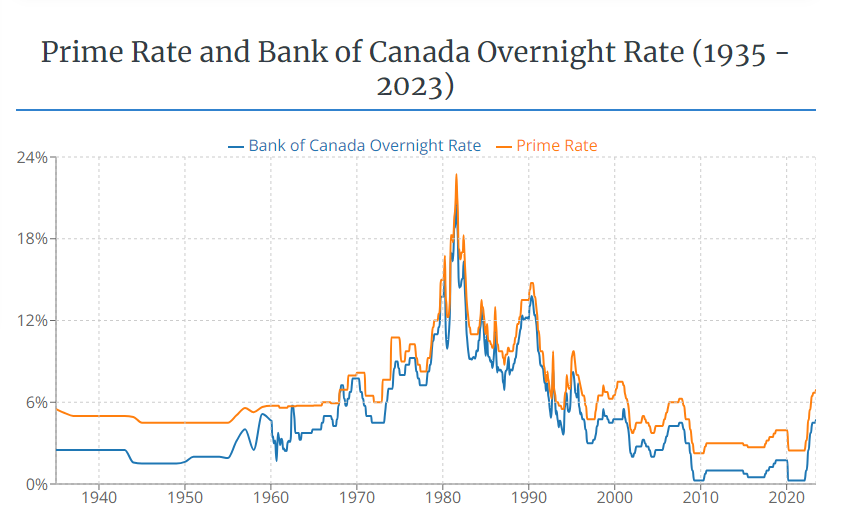So you’re thinking of buying a house? And in order to do that, you might be thinking of getting a mortgage to help with the initial impact. In that case, your credit score is something you should be taking a closer look at. The impact of credit scores on mortgage rates is a common concern for many prospective homebuyers. We often hear that it takes credit to build credit, but what does that really mean?
And how exactly does your credit score affect the interest rate on your mortgage? Let’s explore the intriguing relationship between credit and mortgages to gain a deeper understanding.
And before we start — if you’re looking to deepen your understanding of mortgages, then we suggest you read our mortgage instructions guide.
Table of Contents:

Understanding Credit and Credit Scores
Credit essentially serves as a numerical indicator of how likely you are to repay borrowed money. Lenders use your credit score to analyze the risk associated with lending you money. A higher credit score represents that you are a safer bet for lenders, while a lower credit score suggests a higher level of risk.
Building Credit: The Initial Steps
When it comes to building credit, getting a credit card is often the first step for many individuals. However, it’s crucial to use your credit card responsibly. While it may be tempting to splurge and spend freely, it’s important to remember that you’ll eventually have to pay off the balance. By using your credit card and consistently making partial or full payments each month, you demonstrate to lenders that you are capable of handling your financial obligations.
This responsible behaviour helps boost your credit score. Additionally, making timely payments is essential, and it’s equally important to keep your credit card balances low. This demonstrates to lenders that you are not living beyond your means.

Paying Rent: A Credit-Boosting Option
But what if you don’t have a credit card? Not to worry; there’s another way to enhance your credit score. You can leverage your monthly rent payments to bolster your credit rating. Numerous programs exist that allow your rent payments to be reported to credit bureaus, thereby positively impacting your credit history.
To take advantage of these programs, it’s important to pay your rent on time and provide the necessary verification, such as landlord confirmation or electronic bank records. Some of these programs may require a small fee, but the investment is worthwhile considering the positive credit history it helps establish.
The Impact of Student Loan Debt
For many individuals, student loan debt is a significant financial burden. If you find yourself in this situation, you might be curious about how your student loans affect your credit score and mortgage eligibility. The good news is that as long as you make your student loan payments on time, your credit rating should remain intact. However, it’s important to manage your overall debt load because excessive debt can affect the amount of mortgage you qualify for.

Here are a few steps to consider when applying for a mortgage with student loan debt:
- Pay off other debts: Even small credit card debts can influence your debt-to-income ratio. It’s advisable to pay them off as soon as possible, as this will improve your mortgage affordability.
- Restructure your student loan: By extending the repayment period of your student loan, you can reduce your monthly obligations and positively impact your debt ratios. It’s important to note, however, that this may result in paying more in interest over time.
- Make regular student loan payments: Consistently meeting your student loan obligations demonstrates financial responsibility and can improve your credit score.
- Get pre-approved: If you’re uncertain about your mortgage eligibility with student loan debt, consider applying for pre-approval. This will provide you with a clear understanding of the mortgage amount and interest rate that you can afford.
| Did you know? Students studying in Ontario and the Maritimes have had the highest average debt loads for more than a decade, averaging more than $28,000 across a four-year period. |
Understanding Your Credit Score
To navigate the intricacies of mortgages and interest rates, it’s essential to comprehend your credit score. In Canada, credit scores vary from 300 to 900. While a higher score is generally desirable, a credit score between 743 and 789 is typically considered good, and anything over 790 is considered very good.
Scores between 693 and 742 fall into the “fair” category. Anything below 692 is regarded as “poor,” which may make it more challenging to secure loans from lenders. However, it’s important to note that when it comes to mortgages and obtaining reasonable interest rates, the credit score ranges and their implications differ, as discussed below.
| Did you know? In Canada, credit scores can range anywhere from 300 to 900 points. 900 points is the best score. |
The Influence of Credit Scores on Mortgage Rates
It’s natural to wonder how your credit score impacts your ability to purchase a home. The answer is straightforward: your credit score significantly affects your mortgage interest rate. A higher credit score often translates into a lower interest rate, which can amount to substantial savings, considering the magnitude of a mortgage.
For borrowers that have a credit score of 760 or higher, the best mortgage rates are within reach, provided they have a stable income and meet the lending criteria, including passing the mortgage stress test. A credit score ranging from 650 to 759 will have a moderate impact on available mortgage rates, although access to various rate options should still be possible, especially with a substantial down payment.
As your credit score decreases, so does your access to better interest rates. Previously, a minimum credit score of 680 was required. However, as of July 5, 2021, the Canada Mortgage and Housing Corp. (CMHC) lowered the minimum credit score requirement to 600. While this change benefits individuals working to improve or establish credit, it doesn’t guarantee access to the best mortgage rates. In fact, scores below 680 will lead to incremental rate increases. A credit score of 600 or lower would typically be considered “non-prime,” resulting in mortgage rates approximately two percentage points higher than those offered to “prime” borrowers.
All of the above can be affected depending on the mortgage term you opt to go for.
| Did you know? Most mortgage loans in Canada are renegotiated every 5 years, but they can be as short as 6 months or as long as 10 years. |

Options for Lower Credit Scores
In Canada, obtaining a mortgage from a traditional bank becomes exceedingly difficult if your credit score is below 600. This is where B lenders and private mortgage lenders come into play. Private mortgage lenders do not have a minimum credit score requirement, but it’s important to note that their interest rates tend to be higher than prime rates or even non-prime rates offered by banks. Furthermore, these lenders may impose additional fees due to the higher risk associated with poor credit.
Enhancing Your Credit Score for Better Mortgage Rates
If you’re planning to buy a home in the near future, it’s advisable to monitor your credit score and work toward improving it if necessary. Building a strong credit history takes time, but it’s a worthwhile investment when it comes to securing a favourable mortgage rate. Make timely bill payments, maintain low credit card balances, and manage your debts responsibly. By doing so, you’ll be on the path to achieving a higher credit score and increasing your chances of obtaining an affordable mortgage.
| Did you know? Recent homeowners’ debt service ratios (DSRs) have risen significantly. Over 2022, the median DSR on new mortgages went from 16% to more than 19%, while the fraction of new mortgages with a DSR of above 25% increased from 12% to 29%. |
FAQ
Does credit score affect your mortgage interest rate?
Yes, credit scores directly impact mortgage interest rates. A higher credit score can qualify you for lower mortgage interest rates, potentially saving you thousands of dollars over the life of the loan.
Does a higher credit score help with mortgage rates?
Yes, a higher credit score generally helps you qualify for lower mortgage rates. This is because lenders view borrowers with higher credit scores as less risky, which can result in more favourable loan terms.
What mortgage rate can I get with a 760 credit score?
While the exact rate can vary based on various factors, a person with a 760-850 FICO score could potentially secure a 30-year fixed mortgage with an interest rate of around 4.147%. However, rates can fluctuate based on market conditions and lender policies.
Do you get a lower mortgage rate with better credit?
Generally, yes. Better credit scores typically qualify you for lower mortgage rates because lenders perceive less risk in lending to individuals with a strong credit history.
How much does a difference in credit score affect my mortgage rate?
The impact can be significant. For example, a difference of just 100 points could cost or save you thousands of dollars over the life of the loan. Interest rates can jump for every 20-point decrease in credit score.
Can people with higher credit scores end up paying a higher fee?
In some cases, people with higher credit scores may pay more in fees, while those with lower credit scores may pay less. This can depend on the specific policies of the lender and the structure of the loan.
What credit score do I need to get the best mortgage rate?
While the exact score can vary by lender, generally, a credit score of 760 or above will help you qualify for the best mortgage rates.

Impact of Credit Score on Mortgage Rate – Final Words
In the realm of mortgages, your credit score holds significant sway. It not only determines your mortgage eligibility but also influences the interest rate you’ll be offered. A higher credit score can bring you lower mortgage rates, potentially saving you thousands of dollars over the loan’s lifespan. Conversely, a lower credit score may result in higher rates or limited access to traditional lenders. If you’re aspiring to buy a house, start building or improving your credit today.













